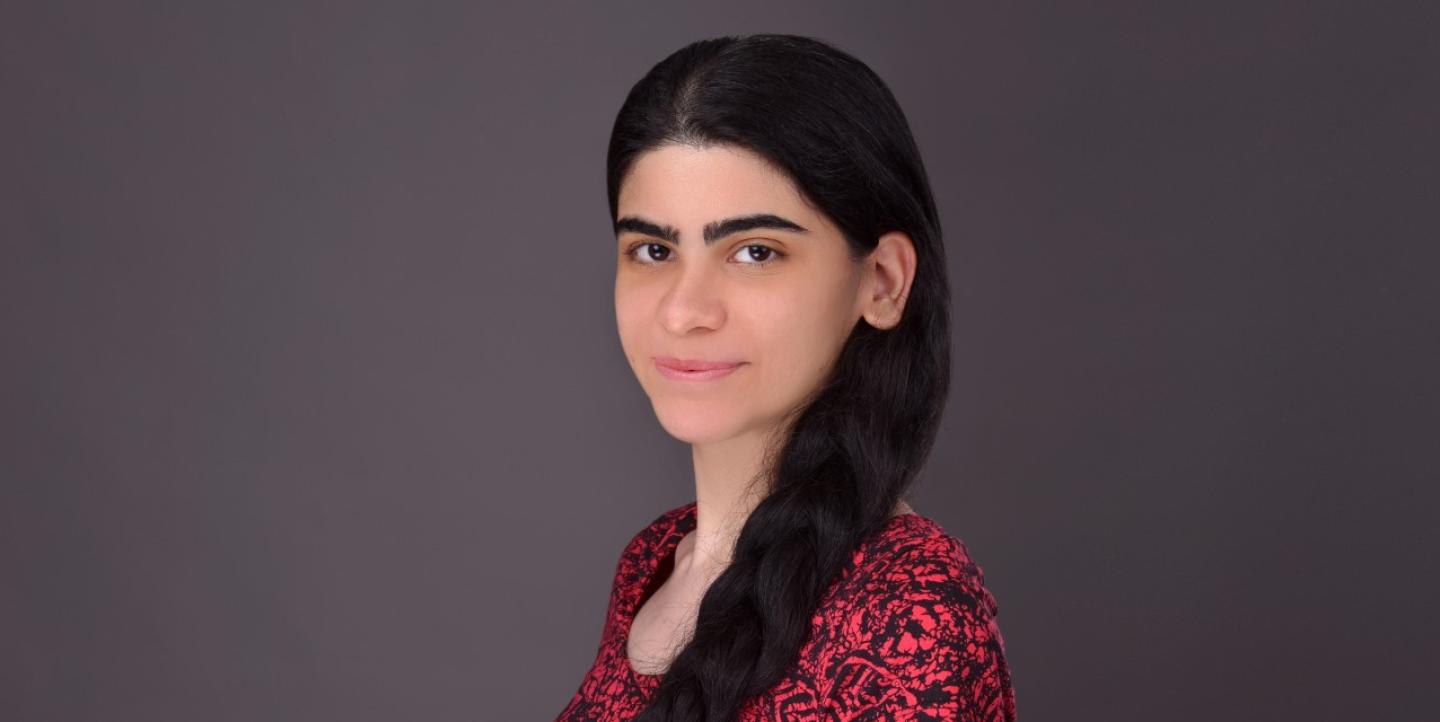Since she was a child, Lara Reffat loved writing and storytelling, and knew that she wanted to go into journalism. For Reffat, journalism meant more than just covering the problems of the day: it was an opportunity to put a spotlight on the people most affected by current events.
“I noticed that the things I'd gravitate towards were stories that had a human interest element, people with names and faces. It just helped me see things from different perspectives,” said Reffat.
Reffat’s career began during her second year at the MSA University in Cairo, after she became interested in working for a local publication called Women of Egypt.
“I just thought, ‘Okay, I'll do it, what's the worst that could happen?', and I pitched an idea on endometriosis, which is a little-known condition in Egypt,” she said. “The founder [of Women of Egypt] really liked the topic, and before I knew it, I was regularly pitching articles to that magazine, focused on women empowerment issues.”
Since then, the Cairo native has established herself as a prominent journalist who highlights women’s issues. Below, she reflects on her start in journalism, what she’s doing now and how IJNet has been an influential force in finding her way as a freelancer.
What kind of obstacles have you faced as a young reporter in Egypt?
I think, both being younger and female, people are a little bit skeptical about how good the quality of your work might be. In the beginning, one of the biggest challenges was not having a strong body of work that people could look at. As time went on, my work started speaking for itself, but even now, there still are people who can be skeptical sometimes. It helps when you show them that you've done your research and that you're committed to writing the piece.
What has been your favorite story to write so far?
My first feature story was about ageism in Egypt at the height of COVID-19, where I'm sure many of us realized just how rampant ageism really is. I got to see just how entrenched ageism is in our society: in media, culture, and even language. I researched a lot, and my favorite types of stories are when the research is not just for your audience. As you research, you're also learning along the way.
I also have a soft spot for my earlier works related to women empowerment, because it's nice to see how I've grown a little bit over the years, and it's important to remember how I started.
How has IJNet helped you?
I used to scroll through IJNet a lot, because I thought there were a lot of interesting and exciting opportunities. There's that moment when you feel as if you need something tailor-made for where you are in your life. I was very lucky to find the African Arguments Fellowship. It got me right away, because it was the “African Arguments Fellowship for Young Freelancers,” so it had everything [I was] in the title.
I applied, even though I knew it was a competitive program. But once I got it, I can honestly say that it was a life-changing experience. It was the first time I had freelanced internationally. I don't think I would have been able to take that deep dive into international freelancing if I didn't have that safe spot to figure myself out and get some help from a mentor.
What projects are you working on right now?
I got another opportunity through IJNet, the African Women in Media graduate trainee program, which I'm doing right now. It's an eight-month intensive program on journalism, everything from writing to podcasting, and it’s also in line with my values about writing topics related to women in media. I got to write from a female-centric angle with [African] Arguments: the taboo of women cycling in Egypt, and about female activists trying to normalize adoption of orphans in the country [for example]. Now, I’m in the middle of my first profile with African Women in Media intersecting feminism with environmental concerns in the country.
What advice do you have for freelancers who are just starting out?
You have to accept that rejection is going to be a part of the process. That's a sure thing. But you can also do some things to make the entire journey of freelancing easier for yourself.
It's really helpful to have your own little database of publications you'd like to pitch to, or just some stories that you would like to pitch eventually. Anytime I come across a publication I think I'd like to pitch to, or an editor calling for pitches or stories, I think, “Okay, I might not be in a place right now where I have the energy or knowledge to pitch to this particular publication, but I will create a personal list.” Creating a list for yourself makes it easier, so that once you're in a place to actually pitch, half the work will already be done.
I also think it's important to write about topics that mean something to you. Journalism can be challenging, but if you’re writing about something you care about, it feels worth it.
Another thing I like to tell younger people is that you might feel like you're on your own sometimes, so having a supportive network of other freelancers can be great, both from a career perspective and personally.
Don’t be afraid of rejection. Don't hesitate to figure out what it is you want to write about, and put yourself out there, both with other freelancers and editors.
Photo courtesy of Lara Reffat.


